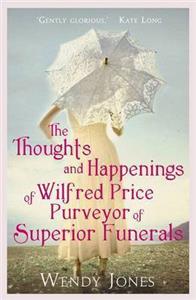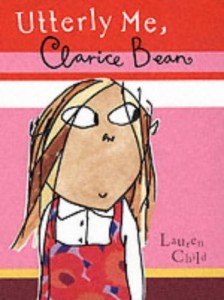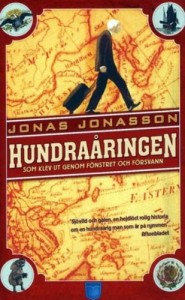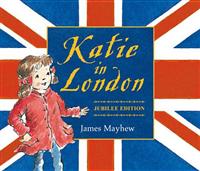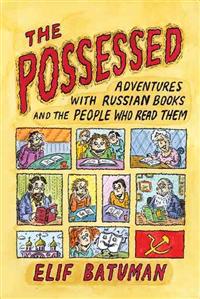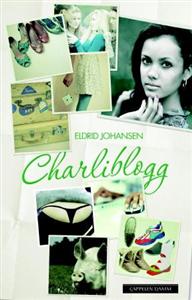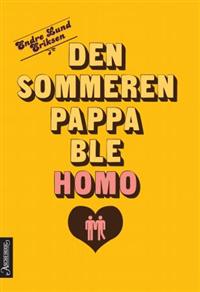 Jeg ble glad da jeg fant Den sommeren pappa ble homo på Øksendal når de hadde 70 % avslag på alle varer, for det er en bok jeg har hatt lyst til å lese. Og jeg ville virkelig like den, dessverre ble jeg litt skuffet. Ikke at den er dårlig, heller, den er bare ikke så bra som den burde ha vært.
Jeg ble glad da jeg fant Den sommeren pappa ble homo på Øksendal når de hadde 70 % avslag på alle varer, for det er en bok jeg har hatt lyst til å lese. Og jeg ville virkelig like den, dessverre ble jeg litt skuffet. Ikke at den er dårlig, heller, den er bare ikke så bra som den burde ha vært.
Arvidsjaur, 13 år, er på campingferie med pappa i Nordfjordbotn, for økonomien er stram etter at mamma flyttet ut til sin litt for personlige trener. Nordfjordbotn er ikke akkurat verdens navle, men her bor i alle fall Indiane, som forsøker å bli venner med Arvid, og pappaen hennes Roger, som er litt vel homo i Arvids øyne, særlig siden Arvids pappa later til å trives så godt i Rogers selskap. Han forsøker, med Indianes hjelp, å forhindre pappaene å bli sammen, samtidig som han lengter etter mer spennende ferie, helst i selskap med kameraten Frank. Frank og Arvid har vært venner ‘alltid’, men nå har Frank kommet ettertrykkelig i puberteten, og det har nok ikke Arvid ennå, så vennskapet er i ferd med å endre seg.
Og nå kommer jeg til å avsløre deler av handlingen, så nå må du slutte å lese om det er et problem for deg…
Så hva var det som ikke funket helt? En ting var at jeg hang meg opp i at Arvid ikke er så voldsomt begeistret for Indiane til å begynne med, og til og med sier at dette ikke er en sånn historie hvor man først ikke liker hverandre for så å bli overstrømmende forelsket. For så blir de det. Ok, ikke overstrømmende forelsket, så i alle fall betraktelig mer interessert enn starten skulle tilsi. Når man først får påpekt klisjeen, for så å få klisjeen servert, så funker det ikke så bra, altså. Men det var vel en minor detail.
Egentlig tror jeg at jeg hang meg mest opp i to ting, det ene er problemer med fortellerteknikken. Boka er skrevet som en slags dagbok, og av og til funker det svært bra, men av og til blir det rett og slett usammenghengende, uten at jeg helt klarer å se at det er meningen. Det andre er at Arvids følelser ikke helt henger på greip. Og her er det jeg får problemer med å forklare hva jeg mener. For det er meningen at det skal være forvirring, så det er ikke det. Men jeg får det ikke helt til å stemme, med måten han er ukomfortabel med nakenhet (for ikke å snakke om porno) på en måte som ikke bare kan forklares med at han ikke har kommet i puberteten ennå (eller eventuelt at han har det, og derfor blir flau, det er jo også en mulig reaksjon), og heller ikke i det jeg føler er en ment undertekst, at han først og fremst er ukomfortabel med kvinnelig nakenhet. For det går seg liksom ikke til hverken i ene eller andre retninga, og har ikke noen annen funksjon i fortellingen enn å understreke at han sliter med å finne ut av sine egne følelser – som er et viktig poeng, men dette med nakenhet går igjen såpass ofte at jeg føler det burde hatt en mer konkret, uhm, rolle? Forklaring? Også Indianes oppførsel skurrer litt innimellom, føler jeg, men siden vi får hennes utsagn og handlinger referert av Arvid er det kanskje ikke meningen vi skal få et godt grep om dem.
Så altså ikke helt full klaff. Synd, synes jeg.
